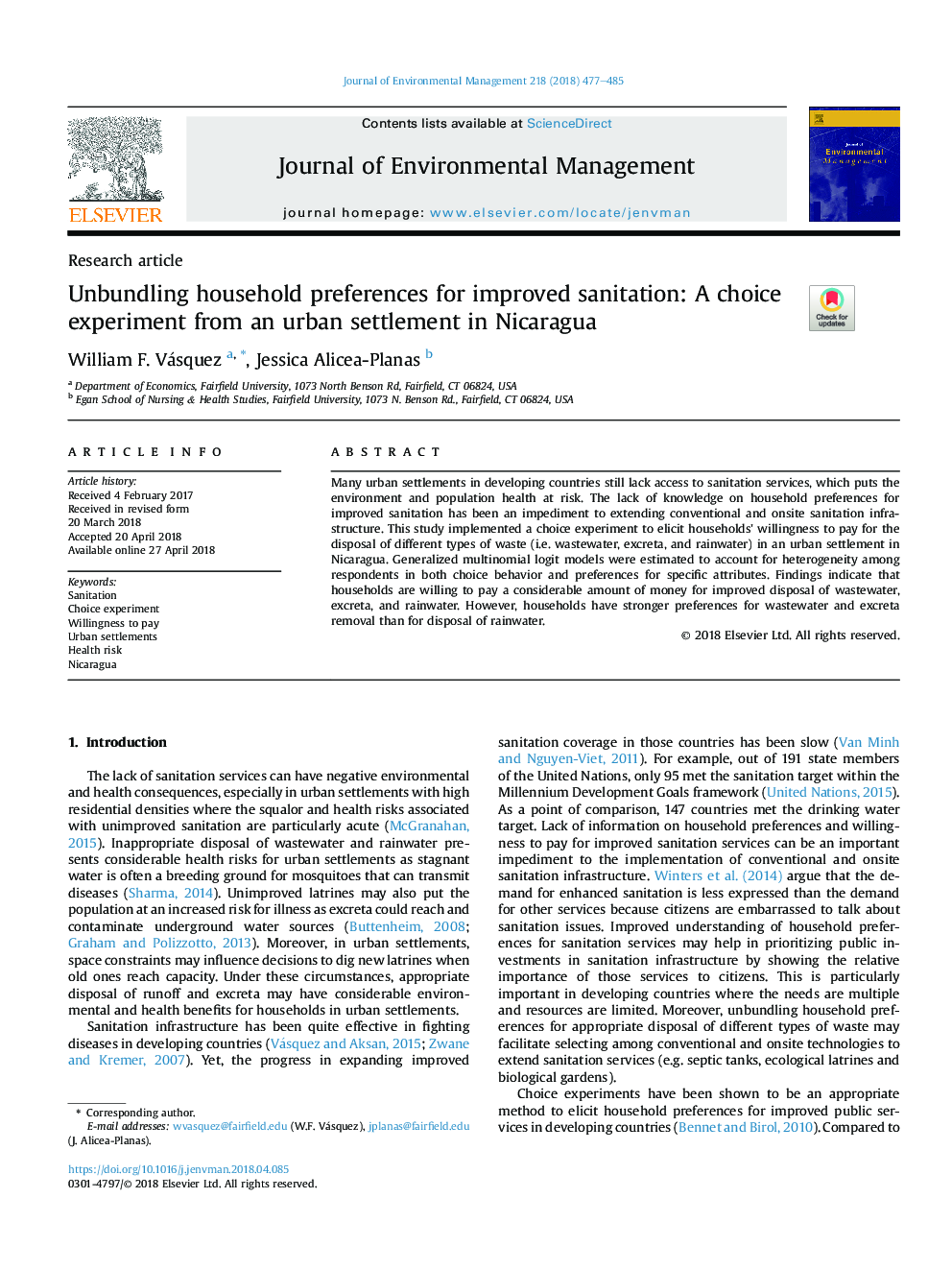| Article ID | Journal | Published Year | Pages | File Type |
|---|---|---|---|---|
| 7477110 | Journal of Environmental Management | 2018 | 9 Pages |
Abstract
Many urban settlements in developing countries still lack access to sanitation services, which puts the environment and population health at risk. The lack of knowledge on household preferences for improved sanitation has been an impediment to extending conventional and onsite sanitation infrastructure. This study implemented a choice experiment to elicit households' willingness to pay for the disposal of different types of waste (i.e. wastewater, excreta, and rainwater) in an urban settlement in Nicaragua. Generalized multinomial logit models were estimated to account for heterogeneity among respondents in both choice behavior and preferences for specific attributes. Findings indicate that households are willing to pay a considerable amount of money for improved disposal of wastewater, excreta, and rainwater. However, households have stronger preferences for wastewater and excreta removal than for disposal of rainwater.
Related Topics
Physical Sciences and Engineering
Energy
Renewable Energy, Sustainability and the Environment
Authors
William F. Vásquez, Jessica Alicea-Planas,
